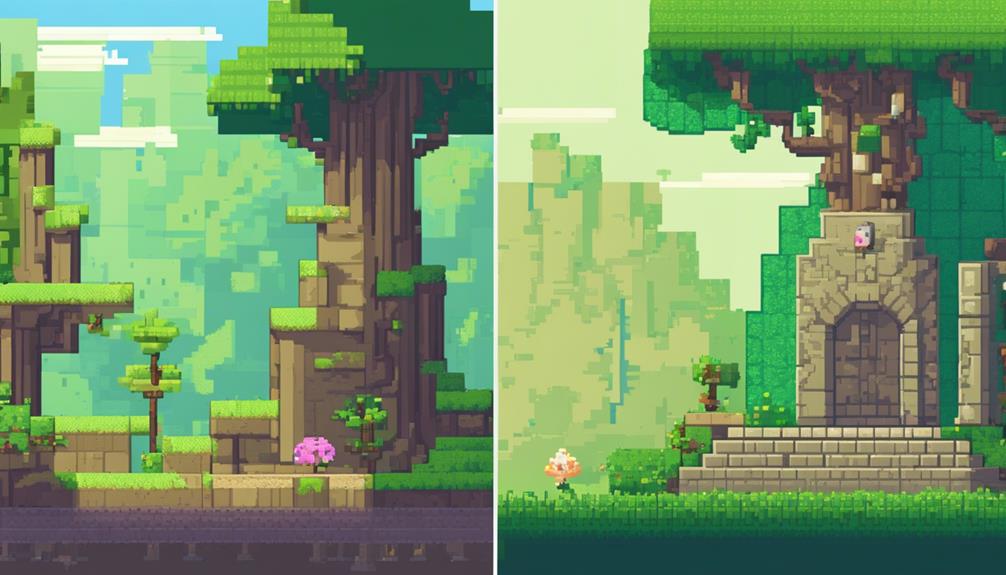Adopting a growth mindset rewires your brain’s neural pathways, helping you learn faster and bounce back from setbacks more effectively. By believing abilities can develop through effort, you activate neuroplasticity—your brain’s capacity for change. Challenging yourself and persisting strengthens these connections, making failure a step toward mastery rather than a dead end. Keep exploring, and you’ll discover how this mindset continually enhances your resilience and ability to adapt.
Key Takeaways
- Embracing a growth mindset activates neuroplasticity, allowing the brain to rewire and accelerate learning from experiences.
- Viewing failures as opportunities for growth reinforces neural pathways, making it easier to learn faster over time.
- Challenging oneself promotes brain adaptation, improving problem-solving skills and resilience against setbacks.
- Repeated practice strengthens neural connections, reducing fear of failure and fostering a mindset of continuous improvement.
- Recognizing biological foundations of learning encourages persistence, enabling quicker adaptation and better management of failures.

Have you ever wondered how some people seem to bounce back from setbacks and keep improving? The answer often lies in their understanding and harnessing of neuroplasticity benefits. Neuroplasticity refers to your brain’s ability to reorganize itself by forming new neural connections throughout your life. When you adopt a growth mindset, you tap into this remarkable capacity, enabling resilience development that helps you face challenges more effectively. Every time you learn something new or recover from a mistake, your brain rewires itself, making you more adaptable and stronger over time.
By embracing the idea that your abilities can develop through effort and persistence, you activate your brain’s natural capacity for change. This mindset encourages you to view failures not as dead ends but as opportunities to grow. As you persist through difficulties, your brain forms new pathways that enhance your skills and understanding. This process isn’t just about mental attitude; it’s rooted in actual biological changes that strengthen your resilience. When you understand neuroplasticity benefits, you realize that setbacks aren’t permanent but rather part of your brain’s way of optimizing itself for future success.
Developing resilience through a growth mindset involves intentionally challenging yourself and staying committed, even when progress feels slow. Each challenge you tackle helps your brain adapt and become more efficient at solving problems. Over time, this resilience development makes you less prone to feeling defeated by setbacks because you recognize that failure is simply a step toward mastery. You start to see obstacles as opportunities to learn and improve, which fuels your motivation and confidence. This cycle of effort, failure, and growth is how you build mental toughness, supported by the biological foundation of neuroplasticity.
The more you practice adopting a growth mindset, the more you reinforce these neural pathways. It’s a dynamic process; your brain is constantly rewiring itself based on your beliefs and actions. When you focus on learning and growth, you send positive signals to your brain, encouraging further neuroplasticity benefits. Recognizing the importance of collaborative brainstorming sessions can further enhance your ability to develop innovative solutions through diverse perspectives. Over time, this pattern strengthens your resilience development, making setbacks less intimidating and more manageable. You begin to understand that failure isn’t a defeat but part of your journey towards mastery. With each attempt, you’re training your brain to be more flexible, resourceful, and resilient—qualities that empower you to learn faster, fail better, and ultimately thrive in any challenge you face.
Frequently Asked Questions
Can a Fixed Mindset Ever Fully Transform Into a Growth Mindset?
A fixed mindset can’t fully transform into a growth mindset overnight, but you can make significant progress through consistent effort. With mindset transformation, you challenge your beliefs, embrace challenges, and learn from failures. While some core attitudes may linger, you’ll develop a more flexible outlook that encourages growth. Keep practicing self-awareness and positive reinforcement; over time, your fixed mindset can evolve into a more growth-oriented perspective, fostering continuous learning.
How Quickly Can Someone Develop a Growth Mindset With Practice?
You can develop a growth mindset surprisingly fast—think weeks, not years—if you practice mindset adaptability. The key lies in actively challenging your beliefs, embracing failures, and seeking feedback. Your learning speed will skyrocket as you shift perspectives, but patience is essential. With consistent effort, you’ll notice a transformation that feels almost magical, turning setbacks into stepping stones and making growth an exciting, ongoing journey rather than a distant goal.
Are There Specific Personality Types More Receptive to Adopting a Growth Mindset?
Certain personality traits, like openness to experience and resilience, make you more receptive to adopting a growth mindset. If you’re motivated by curiosity and a desire for self-improvement, you’ll find it easier to embrace challenges and learn from failures. While personality influences your receptiveness, cultivating a growth mindset also depends on your motivation factors and willingness to change, regardless of innate traits.
How Does Age Impact the Ability to Develop a Growth Mindset?
Imagine your mind as a flexible clay sculpture; age doesn’t harden it but can influence its shape. You can develop a growth mindset at any age, thanks to mindset plasticity. While younger minds may adapt more easily, older minds still hold remarkable age flexibility. With effort and openness, you can reshape your beliefs and embrace challenges, proving that growth isn’t bound by age—your mindset remains a work in progress.
What Are Common Misconceptions About Growth Mindset in Education?
You might believe that growth mindset is just about effort, but that’s a misconception myth. Some overgeneralized beliefs suggest that praising effort alone boosts learning, ignoring the importance of strategies and feedback. Many think it applies universally without considering individual differences or context. In reality, fostering a growth mindset requires nuanced understanding and tailored approaches, not just simple encouragement or overgeneralized beliefs.
Conclusion
Embracing a growth mindset is like planting a seed in the fertile soil of your potential. With each challenge, you water it with effort, watch it sprout resilience, and watch your skills bloom brighter every day. Failures become stepping stones, not setbacks, guiding you toward mastery. So, keep nurturing that seed, stay curious, and remember: your mind’s garden flourishes when you believe it can grow. Success is just waiting to blossom within you.










